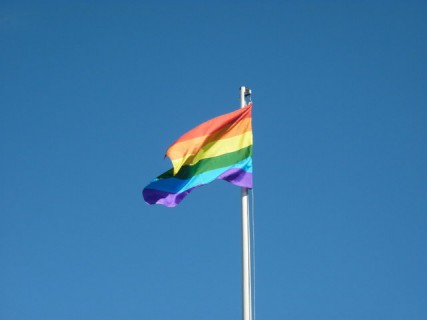
Gay Americans are much less religious than the general U.S. population, and about three in 10 of them say they have felt unwelcome in a house of worship, a new study shows.
The Pew Research Center’s study, released Thursday (June 13), details how gay, lesbian, bisexual and transgender Americans view many of the country’s prominent faiths: in a word, unfriendly.
The vast majority said Islam (84 percent); the Mormon church (83 percent); the Roman Catholic Church (79 percent); and evangelical churches (73 percent) were unfriendly. Jews and nonevangelical Protestants drew a more mixed reaction, with more than 40 percent considering them either unfriendly or neutral about gays and lesbians.
Ross Murray, director of news and faith initiatives for the gay rights group GLAAD, said relations between the religious and gay communities have warmed in recent years, but before the last decade they were “pretty painful.”
He thinks the sense of unfriendliness comes in part from the loudest voices of faith speaking through an anti-gay frame. Religious groups that support gays and lesbians, as a GLAAD study found last year, get far less media attention.
“The leading anti-gay voices always put it in religious terms, which taints how people view religion,” Murray said.
While Pew researchers found that U.S. gays noted increased social acceptance, 29 percent of those surveyed said they personally have felt unaccepted in a house of worship. That compares to 39 percent who say they’ve been rejected by a close friend or family member, and 21 percent who say they’ve been treated unfairly by an employer.
Almost 50 percent of gay, lesbian, bisexual and transgender adults say they have no religious affiliation, compared to 20 percent of the general population. One-third of religiously affiliated gay and lesbian adults say there is a conflict between their faith beliefs and their sexual orientation or gender identity.
Although many gay Americans seem to eschew faith, the majority of those who are religiously affiliated are Christian – 42 percent. Two percent are Jewish and 8 percent belong to another non-Christian faith.
Just like the general public, younger gays and lesbians are less likely to have religious ties. But while nearly one-third of 18- to 29-year-olds in the general public are not affiliated with a religion, almost double that share – 60 percent – of gays and lesbians in that age group are unaffiliated.
The Pew survey was based on interviews from April 11-29 with 1,197 self-identified gay, lesbian, bisexual and transgender adults and had a margin of error of plus or minus 4.1 percentage points.






